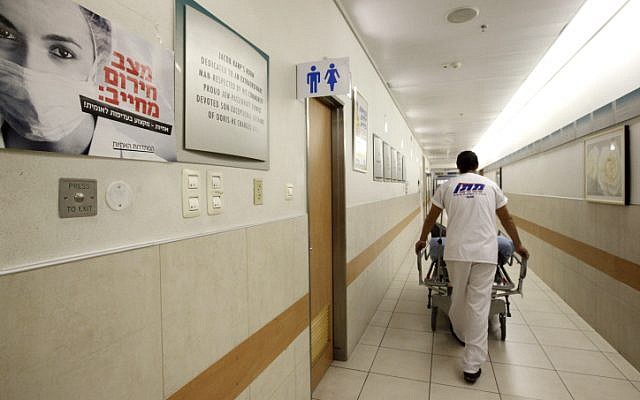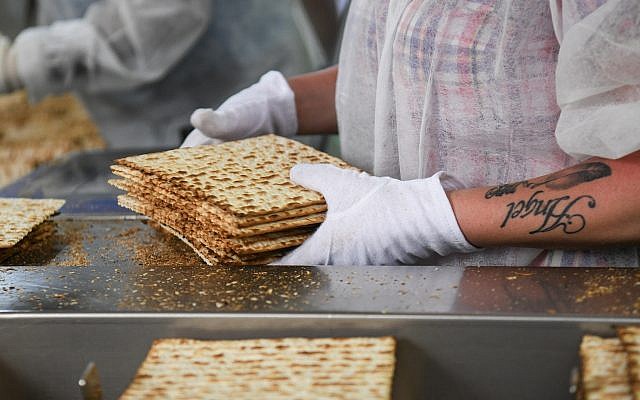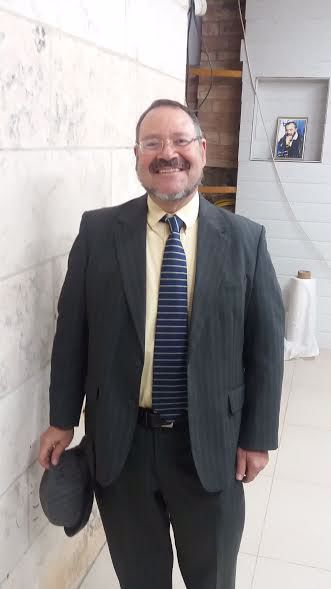| Killed a Jew? In France that makes you unfit for trial Killing a Jew is due to "extenuating circumstances," the killer "criminally irresponsible." You don't understand because he shouted "Allahu Akhbar?" Ask the French courts. Giulio Meotti, 17/04/19 07:23 | updated: 07:06  Giulio Meotti The writer, an Italian journalist with Il Foglio, writes a twice-weekly column for Arutz Sheva. He is the author of the book "A New Shoah", that researched the personal stories of Israel's terror victims, published by Encounter and of "J'Accuse: the Vatican Against Israel" published by Mantua Books.. His writing has appeared in publications, such as the Wall Street Journal, Frontpage and Commentary. Sarah Halimi was a 65 years old Jewish retired doctor. She lived in the 11th neighborhood of Belleville. She was murdered two years ago, at night, by her neighbor, Kobili Traore, who shouted "Allahu Akbar". A crime? Not at all! Anti-Semitism? Don't joke around with me! Islam? Don't make generalizations, you racist fear monger! The "experts" have decided. Traore was crazy, therefore he is "criminally irresponsible". Hence the shameful conclusion of not instituting a trial, as if Sarah Halimi had not been killed just because she was Jewish. At the beginning, the judiciary's omission of the aggravated element of a hate crime caused by anti-Semitism was a cover up of the anti-Semitic character of the horrible crime. Now anti-Semitism is denied by the lunatic nature of the terrorist. The French media covered Halimi's death only two months after it happened. If you drink two glasses of wine before rolling someone up with your car, that is an "aggravating circumstance". If you shout "Allahu Akbar" and "Satan" before throwing an old Jewish woman out of her apartment window, that's an "extenuating circumstance", especially if you've smoked cannabis before the homicide! Crazy - the French Muslim barbarians who tortured the Jew Ilan Halimi to death. Crazy - the French Muslim barbarian who burned Mireille Knoll, a Holocaust survivor, to death in her bed. Crazy - the French Muslim barbarians who slit the throat of the priest Jacques Hamel in his church. Crazy - the French Muslim barbarian who shot to death the Jewish children in Toulouse. All were insane, all were crazy. Crazy as the few brave ones who shouted the alarm in the West, those "crazy Islamophobes" who need to be isolated. France has just given the green light to the next murder of Jews. But maybe we're just all crazy. |
|
|
|
Anti-Semitic graffiti in US Photo: from the facebook of Debby Barton Grant One third of Americans do not believe six million Jews were murdered in Holocaust A survey conducted by the Claims Conference reveals: Over two thirds of Americans never heard of Auschwitz, half could not name a single concentration camp or ghetto. Itamar Eichner|Published: 04.14.19 , 10:58 One third of Americans believe only 2 million Jews were murdered during the Holocaust and 66% of millennials have never heard of Auschwitz, according to a comprehensive national survey of Holocaust awareness and knowledge among adults in the United States, released by the Claims Conference, founded to deal with restitution for Holocaust survivors. Over 45% asked, could not name any of the 40 ghettos or concentration camps present in Europe during the Second World War. That number increases among people born in the 80's and 90's of the 20th century.  Vice President Pence visits Auschwitz concentration camp (Photo: EPA) The study reveals 68% of Americans believe there is anti-Semitism in the US and 37% say neo-Nazi's exist in large numbers. Seven out of ten say fewer people care about the Holocaust than in the past. A majority (58%) believe a similar event could take place again. According to the study Americans are not educated enough about the Holocaust and reports agreements schools must do more. However not all results were negative. Nine out of ten surveyed (93%) believe all students should learn about the Holocaust in school and eight out of ten say it is important to keep teaching about the Holocaust so it does not happen again.  Rail tracks to Auschwitz (Photo: Associated Press) |
|
|
13 hospitals to defy Passover bread ban, more than double last year's number In 2018, just 5 medical centers in Israel ignored directive from rabbinate and Health Ministry to confiscate leavened food products By TOI STAFF
 Illustrative photo of an Israeli hospital (Miriam Alster/Flash90) Thirteen hospitals have announced they will not follow the annual directive from the Chief Rabbinate and the Health Ministry to actively ban food that is not kosher for Passover during the upcoming Jewish holiday. The hospitals told Army Radio on Tuesday they would not instruct their security guards to check visitors and patients for hametz, leavened food products that do not comply with Passover regulations. The hospitals are: Haifa's Rambam Medical Center and Carmel Medical Center, Kaplan Medical Center in Rehovot, Ziv Medical Center in Safed, Yoseftal Hospital in Eilat, Soroka Medical Center in Beersheba, Ichilov Hospital in Tel Aviv, Sheba Hospital at Tel Hashomer, Barzilai Medical Center in Ashkelon, Beilinson Hospital in Petah Tikva, Meir Medical Center in Kfar Saba, Haemek Hospital in Afula and the Hillel Yaffe Medical Center in Hadera. The hospitals said they would put up signs asking patients to refrain from bringing leavened bread products inside the wards, but told the radio station they would not actively block any food from entering their premises. Three hospitals told Army Radio they would uphold the directive: Hadassah's two campuses in Jerusalem and Laniado Hospital in Netanya. The presence of leavened food products in hospitals during Passover is an ongoing source of friction between religious authorities and secular activists who say the directive is a form of religious coercion.  Workers prepare matzah, the unleavened bread eaten during the eight-day Jewish holiday of Passover, in Aviv Matzah plant in Bnei Brak on April 14, 2019 (Courtesy Flash 90) Though hospitals risk losing their Rabbinate-issued kashrut license for refusing to implement the ban, an increasing number of institutions are choosing to ignore the rules. Last Passover, five hospitals disregarded the orders, less than half the number of hospitals that vowed to defy the Health Ministry in 2019. Last March, the Secular Forum NGO together with opposition lawmakers petitioned the High Court of Justice seeking to have the ban outlawed. But the state sided with the Health Ministry, headed by an ultra-Orthodox lawmaker, Yaakov Litzman. In its decision, the court suggested that hospitals set up cordoned-off areas where patients and visitors could eat food that is not kosher for Passover. The plaintiffs blasted the ruling and the suggestion as "unreasonable" and an attack on Israel's secular and non-Jewish populations. The Passover custom of eating only unleavened products commemorates the Exodus of the Jewish People from Egypt, which, according to the Bible, took place so quickly that they did not have time for their bread to rise.The seder this is year on Friday night, April 19. |
|
|
Israel's new Credit Rating system has started. According to Rifka Lebowitz of the Living Financially Smarter in Israel Facebook group, the idea is that if you want a loan, lets say from a new bank, they will have access to information (if we agree) on how we paid off debt in the past. If you paid off debts in the past on time, you'll have a good rating and get the loan at a more attractive rate. Here's information from the Bank of Israel: The Credit Data System, which was established by the Bank of Israel accompanied by the Ministries of Finance and of Justice, will lead to enhanced competition in the credit sphere, both within the banking system and from nonbank entities. The system will enable customers to receive credit at the most beneficial terms available to them, and it is expected to change the current rules of the game in the retail credit market. In accordance with the Credit Data Law, 5776-2016, the Bank of Israel began to implement the final stage of establishing the Credit Data System and beginning its operation, which is planned for mid-April. As established by law, the Bank of Israel collects credit data from data sources such as credit providers and government authorities, and will transfer them—if the customer is interested in it and consents to it—via credit bureaus to credit providers authorized to use the information (lenders) and to the customers themselves (borrowers). The information collected from data sources that are banks and credit card companies is from May 2016 and onward, and data from the Postal Bank, the Checks without Cover Section at the Bank of Israel, Execution Offices, and the Official Receiver is from August 31, 2018 and onward. Supervisor of Credit Data Sharing Tsuriel Tamam said, "We expect that within a short period of time, with the completion of the preparations by the various entities for activity with the new system, the Credit Data System will enhance the competition in the credit area and will have the ability to markedly change the rules of the game in the retail credit market. The system will enable customers to receive more valuable offers and they will be able to manage their steps in an informed manner and increase their negotiating power vis-à-vis various lenders when they come to receive credit." Information on the credit data system is published on the Bank of Israel's designated website: www.creditdata.org.il |
|
|
| |  Zev Stub Zev Stub  Monday, 15 April 11:14 AM Monday, 15 April 11:14 AM | | | From ISRAEL21c Shells of chicken eggs found in excavations at Jerusalem's City of David, dating from the end of the First Temple era (around 70 CE), have been analyzed and reconstructed using 21st century technology. The eggs confirm the place of domesticated chickens on the dinner plates of Jerusalem's upper class in biblical times, according to a study led by Prof. Zohar Amar of the Martin (Szusz) Department of Land of Israel Studies and Archaeology at Bar-Ilan University in Ramat Gan. The study analyzed several hundred eggshell fragments found in refuse and ash during excavations by archeologist Eilat Mazar about a decade ago. Amar examined all the fragments using a new unique algorithm developed by Dr. Avshalom Karasik of the Israel Antiquities Authority for the reconstruction of pottery vessels. He found enough large pieces to reconstruct one full egg. 
Prof. Zohar Amar and the remnants of First Temple-era chicken eggs. Photo courtesy of Bar-Ilan University The reconstruction shows that the height was about 50 mm, its diameter 40 mm, and its total volume 61 cc — similar to the size and volume of modern chicken eggs. This finding has important implications in the field of Talmudic Jewish law (halakhah), which makes use of a measurement called "kabeytza" (like an egg). Amar noted that eggshells are rarely found in archaeological digs because of their fragility. This discovery is especially significant because it's the earliest evidence of chicken eggs found thus far in the Near East. Until now, the only chicken-related archaeological finds from the biblical period in Jerusalem were a few bones and several seals of the royal house bearing the image of a fighting rooster. Amar will share the finding of the study at a Bar-Ilan conference next month on agriculture and nature in ancient Israel. Later on it will be published | |
|
|
Enjoy what's left of Chul Hamoed (tomorrow) and have a beautiful Hag
Love Yehuda Lave
|
|
|
| | | |
 | | | | | |
|  |
|
| |
|












No comments:
Post a Comment